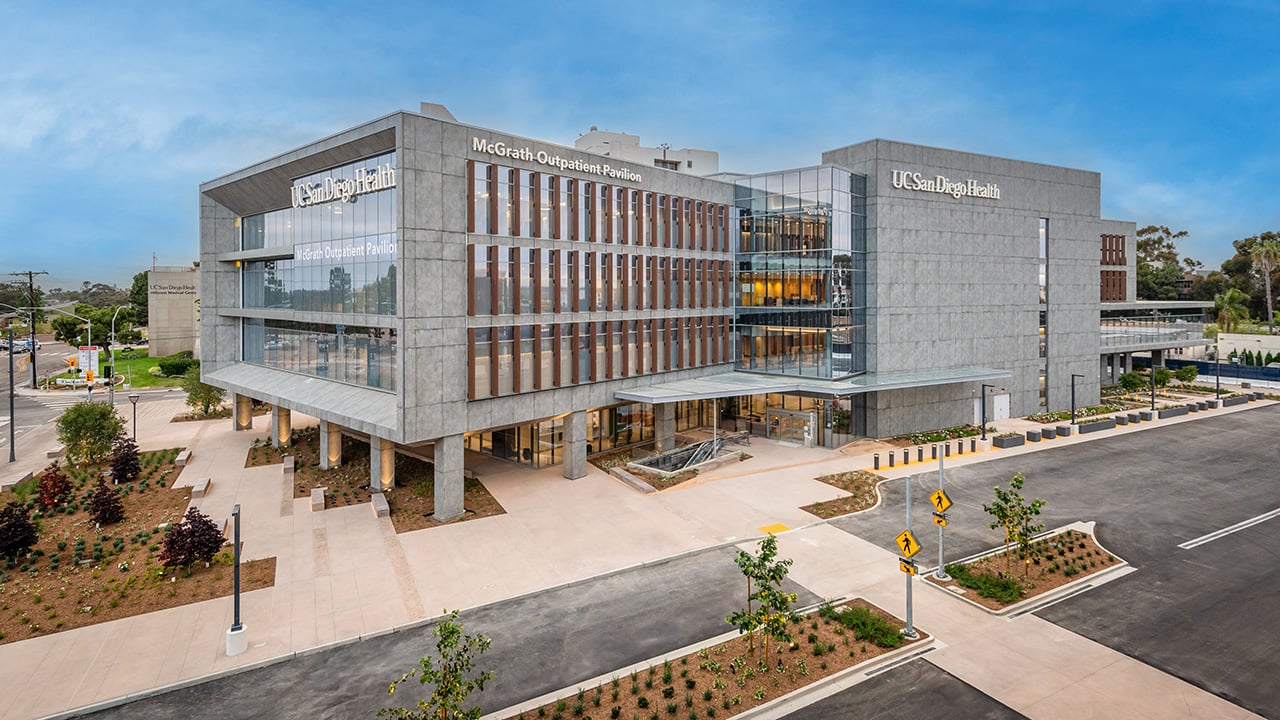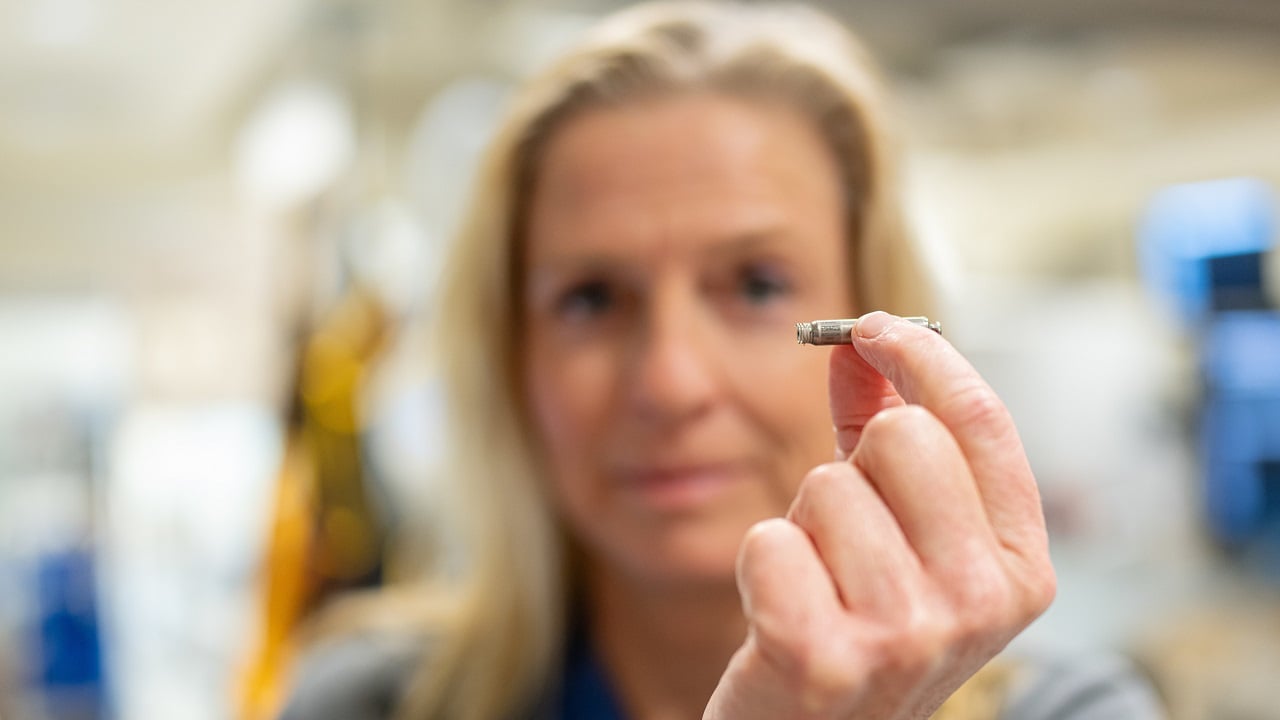Extracorporeal membrane oxygenation (ECMO) is the highest level of life support for people who are in cardiac or respiratory failure.
ECMO is a technology that works outside the body to pump and oxygenate a patient's blood. This allows the overworked heart and lungs to rest and heal while being treated by our medical and surgical physicians.
Patients who are unable to recover from their illness may be considered for long-term advanced therapies such as ventricular assist devices or heart/lung transplantation.
Our ECMO program has earned the prestigious Extracorporeal Life Support Organization's (ELSO) GOLD Award for Excellence in Life Support. This honor recognizes the UC San Diego Health team's commitment to exceptional patient care.
At UC San Diego Health, we can initiate ECMO in our hospital and can also provide mobile ECMO to patients at other hospitals.
In-Hospital ECMO
We have a multidisciplinary team of physicians, nurses, pharmacists, occupational and physical therapists, respiratory therapists, and perfusionists who care for patients on ECMO while at UC San Diego Health. With this large team, we provide comprehensive care to give patients the best opportunity to recover.
Physical and Occupational Therapy
We also provide physical and occupational therapy for patients on ECMO when appropriate. Some patients on ECMO are even able to exercise and walk. This helps them maintain their strength as they recover or receive advanced therapies, such as ventricular assist devices or transplantation.
Mobile ECMO
Some patients are too ill for transport to our center using conventional life support. In this case, using various transportation methods, our mobile ECMO team will place patients on ECMO at other hospitals and transport them back to UC San Diego Health.
UC San Diego Health is one of the few centers in Southern California that provides mobile ECMO. The program is led by Travis Pollema, MD, Mazen Odish, MD, and Cassia Yi, APRN, CCRN.
In the News
Groundbreaking Double Lung Transplant
Federico Gomez Gil was on ECMO support for over 50 days after a severe case of COVID-19 led to pneumonia. Then he received the region's first double lung transplant.
Video: ECMO in Action

Our ECMO Team
Our ECMO team represents many disciplines, including cardiothoracic surgery, nursing, pulmonology, cardiology, emergency medicine, anesthesiology, perfusion, and pharmacy.
We have extensively trained a group of our intensive care nurses to take care of ECMO patients with the support of our perfusionists who operate the heart-lung machine.
UC San Diego Health is designated as a Magnet Hospital by the American Nurses Credentialing Center (ANCC), which recognizes superior quality and innovation in nursing care.
Our Specialists
- Director: Travis Pollema, MD, Cardiothoracic Surgeon
- ECMO Program Coordinator: Cassia Yi, APRN, MSN, CNS, CCRN
- Mazen Odish, MD, Pulmonary and Critical Care Medicine
- Robert Owens, MD, Pulmonary and Critical Care Medicine
- Michael Madani, MD, Cardiothoracic Surgeon
- Angela Meier, MD, Anesthesiology and Critical Care Medicine
- Samira Najmaii, Perfusionist
- Marcus Anthony Urey, MD, Advanced Heart Failure Cardiology
ECMO Doctors
Who Determines if a Patient is Eligible for ECMO?
A dedicated team experienced in ECMO assesses the whole patient to determine ECMO eligibility. This team includes surgeons, pulmonary and critical care physicians, cardiologists, and an ECMO nurse specialist.
What Conditions Can ECMO Therapy Help?
Respiratory failure, including causes such as:
- Acute lung injury such as acute respiratory distress syndrome (ARDS)
- Viral illnesses, including influenza or coronavirus
- Pneumonia
- Sepsis-related ARDS
- Pneumonia (viral, bacterial, atypical)
- Pancreatitis with systemic inflammatory response syndrome (SIRS)
- Drowning
- Burns (smoke inhalation)
- Failed lung transplant
- Bridge to lung transplant
Heart failure, including causes such as:
- Acute or chronic heart failure
- Cardiogenic shock
- Acute myocardial infarction
- Refractory arrhythmias
- Myocarditis
- Post-partum cardiomyopathy
- Pulmonary embolus
- Post-cardiotomy failure (post-surgery)
- Post-transplant organ failure
- Hypothermic arrest
- Drug overdose
- Anaphylactic shock
- Failed heart transplant
- Bridge to ventricular assist device (VAD) or transplants
For Providers: Criteria for ECMO
Suggested Indications
- Refractory hypoxemic respiratory failure with a ratio of arterial oxygen tension to a fraction of inspired oxygen (PaO2/FiO2) of <100 mmHg despite optimization of the ventilator
- Severe hypercapnic respiratory failure
- Improved outcomes if patients are placed on ECMO within 7 days of respiratory failure
- Pre-lung transplant rehabilitation
- Pulmonary support as a bridge to lung transplantation
- Cardiogenic or circulatory failure despite optimization of conventional therapies
- Cardiac support as a bridge to recovery, ventricular assist devices, or heart transplant
- Massive pulmonary embolism requiring vasopressor support
- Failure to wean from cardiopulmonary bypass after cardiothoracic surgery
Contraindications
- A pre-existing condition that is incompatible with recovery (severe neurologic injury, end-stage malignancy)
- Uncontrollable bleeding





